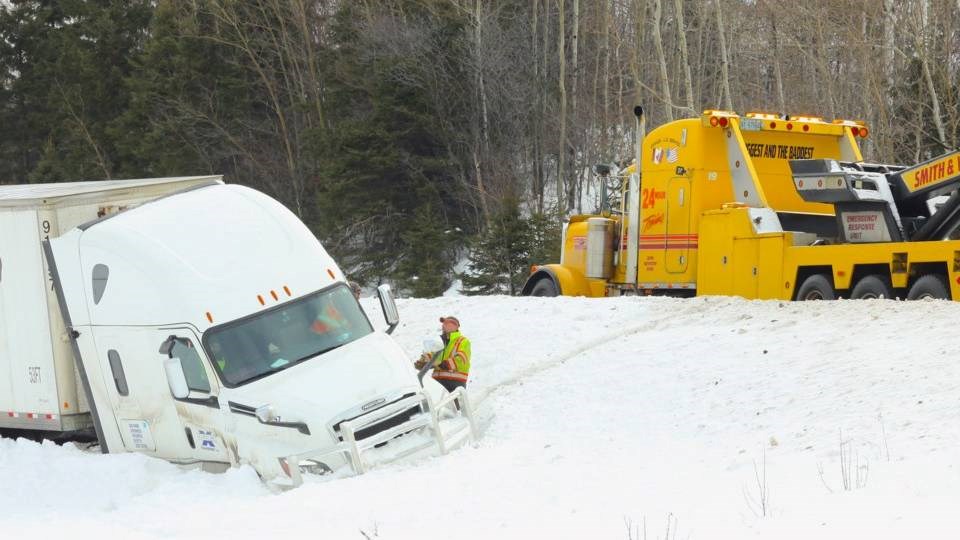Ontario's Ministry of Transportation is defending highway safety in the province after opposition MPPs and a trucking industry advocate said the government needs strengthen the industry's regulations.
The ministry has issued a statement after a Queen's Park news conference was held on Wednesday, where Thunder Bay-Superior North NDP MPP Lise Vaugeois’ outlined concerns about whether truck drivers are receiving adequate training under the province's current licensing standards.
“The Ministry of Transportation takes the safety of all road users very seriously. Ontario has some of the safest roads in North America, and we are working hard to ensure they stay this way,” wrote Dakota Brasier, the ministry's senior communications advisor and press secretary, in a statement.
Recently, Northern Ontario has seen multiple highway closures due to hazardous weather resulting in commercial motor vehicle collisions including the deaths of a transport driver near Marathon and a snowplow operator after colliding with a tractor trailer near Ignace. In Beardmore, a transport truck crashed into two homes.
In Northeastern Ontario this week, there was a fatal crash on Highway 11 near Matheson. So far this year, at least four people have been killed in crashes on Highway 11 in northeastern Ontario.
SEE: One person killed in Highway 11 crash
Vaugeois insisted some trucking companies operate their trucking school, which can be seen as a conflict of interest implying that private companies are fast-tracking new drivers before they are ready to drive on the road.
The government spokesperson called Ontario's commercial licensing system among the most robust in the country.
"It is designed to ensure that only qualified individuals operate commercial vehicles and those who are not law-abiding face stringent penalties,” Brasier wrote.
Travis McDougall, a Truckers for Safer Highways co-founder, discussed during the press conference that the advocacy group met with MTO enforcement officials in December.
“We think that was helpful, but we also learned in that meeting that a big focus right now for the enforcement agencies is on highway patrol and, especially in Northern Ontario, what they are doing is less operating inspection stations and scales,” said McDougall.
A commercial trucker driver, McDougall acknowledges that many inspection stations and scales across Ontario and western Canada are closed.
“You’re missing a lot of ability to monitor the drivers and them doing their job,” said McDougall.
McDougall used the example of an e-log system which monitors the hours of the driver.
“We have e-logs now. I can drive with my e-log and when the red light flashes it signals, I’m over my hours, but that doesn’t stop me from driving. And if an officer doesn’t stop me to check on that, and the most common place for that to happen is at a scale, then the fact that that log is flashing saying that “you drove longer than you are allowed today,” it means absolutely nothing,” said McDougall.
McDougall also notes that it’s also the responsibility of the trucking company to tell their drivers to stop when they go over their allotted hours; however, McDougall states that not all carriers enforce that mandate.
Brasier states, “despite our high track record on road safety, we know that there is always more we can do to make our roads even safer.”
Timiskaming-Cochrane NDP MPP John Vanthof said the official opposition meets with ministry officials, including Minister Caroline Mulroney, almost weekly about road issues, stating, “highways safety in Northern Ontario is probably the number one issue.”
Brasier said that the government is currently exploring further enhancements to the Entry-Level Training program, which mandates that drivers have at least 103.5 hours of instruction to acquire the skills necessary to operate a commercial motor vehicle.
“[We are] constantly reviewing its policies and programs to identify actions we can take for continuous improvement on road safety,” said Brasier.
